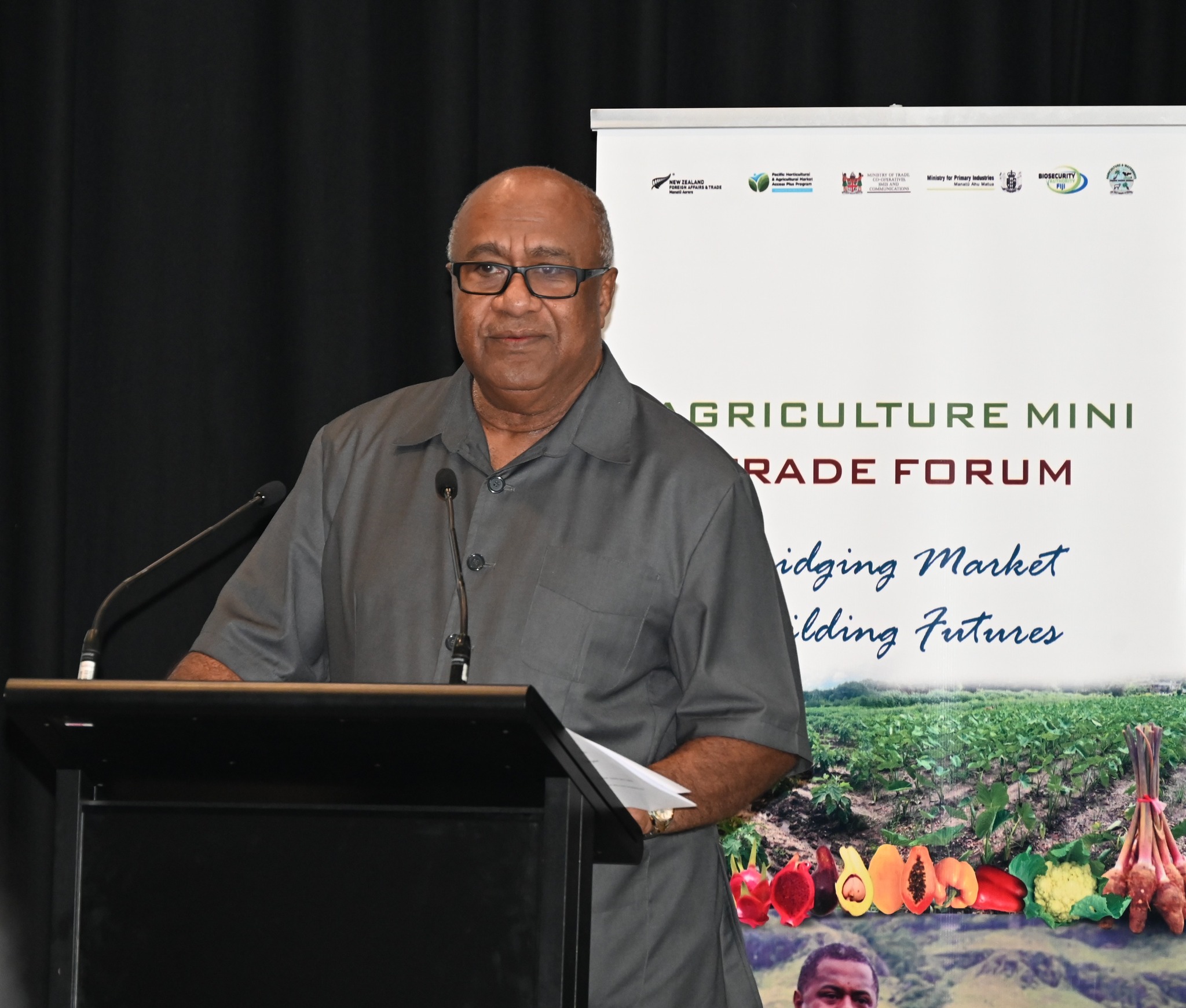FIJI TARGETS CONSISTENT, MARKET-DRIVEN EXPORTS AT AGRICULTURE MINI-TRADE FORUM
July 31, 2025

“This region is rich in potential and home to hardworking, enterprising people. It is only fitting that we gather here to continue bridging markets and building futures.”
These were the opening remarks delivered by the Deputy Prime Minister and Minister for Trade, Co-operatives, Micro, Small and Medium Enterprises, and Communications, Honourable Manoa Kamikamica, at the Agriculture Mini-Trade Forum held at the Sofitel Resort in Nadi.
Addressing dignitaries, government officials, farmers, and stakeholders from across the Western Division, Hon. Kamikamica highlighted the urgency of transforming Fiji’s agricultural trade systems.
“An estimated 60% of our agricultural produce still doesn’t reach formal markets—not because of a lack of effort, but because our systems—logistics, aggregation, and market intelligence—are not yet fully aligned. That is why this forum matters.”
He emphasized the need for a shift from a supply-driven model to one that is firmly grounded in market demand.
“This means planning production based on real-time demand, meeting international standards, and coordinating the entire supply chain—from farm to freight.”
Hon. Kamikamica painted a vision of a smarter, more efficient trade ecosystem.
“Imagine a future where our farmers know next month’s demand figures as well as their harvest schedules. Where exporters can rely on consistent volume, quality, and timeliness. Where a buyer in Auckland doesn’t just want cassava—they want Fijian cassava, because they trust our standards and our supply.”
He stressed that global markets reward consistency—not one-off shipments, but sustained deliveries month after month.
“That is the kind of demand-led, high-performance system we are working toward.”
At the heart of this transformation, he said, are farmers, Micro Small Medium Enterprises (MSME’s), and cooperatives.
“The co-operative model gives us scale and shared infrastructure. MSMEs provide agility, creativity, and reach. That is why, in the 2025/2026 National Budget, my Ministry has been allocated $5.5 million—a 36% increase from the previous year—to support programmes such as the Cooperative Development Fund, the National Export Strategy, and the Integrated Human Resource Development Programme.”
He was clear that this funding is not about handouts but a smart investment in people who are ready to hustle and grow.
Despite the optimism, Hon.
Kamikamica acknowledged ongoing challenges—fragmented coordination, gaps in
certification, and inconsistent supply—all of which undermine trust and limit
opportunities.
To address these, he said, partnerships are being strengthened with key stakeholders including the Ministry of Agriculture and Waterways, the Biosecurity Authority of Fiji, MPI New Zealand, Pacific Trade Invest, and PHAMA+.
“Together, we are streamlining logistics, investing in certifications, and linking producers to structured markets.”
Hon. Kamikamica also encouraged farmers to embrace digital trade tools, noting that even small producers can now access global markets.
“To compete globally, we must understand shifting consumer preferences, package and brand our products to reflect quality and origin, and meet the expectations of buyers in Auckland, Honolulu, Singapore, and beyond.”
He concluded with a rallying call for long-term transformation.
“Trade is built on trust. It’s not about one deal—it’s about becoming the preferred, most trusted supplier. Let’s not wait for perfect conditions—let’s be the generation that builds them. Let’s shift from fragmented exports to sustained, predictable supply."
"Let’s bridge last-mile gaps—from farmgate to supermarket shelf—and turn this forum into a launchpad for a new era of Fijian trade.”
The two-day forum features open discussions on unlocking access to the New Zealand market, with a focus on consistent supply, structured trade models, and maximizing profits for local farmers.
ENDS
